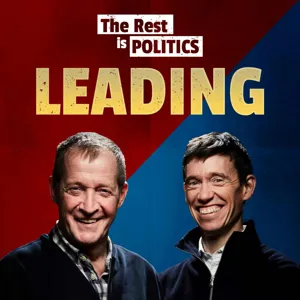Podcast Summary
Understanding Economics: What to Produce, How Much, How, and For Whom: Economics tackles the problem of unlimited desires and limited resources by answering fundamental questions and promoting growth, but the sustainability of endless growth is a concern.
Economics is a complex field dedicated to finding the best possible solutions to the fundamental problem of unlimited desires and limited resources. This problem is addressed through answering four key questions: what to produce, how much to produce, how to produce, and for whom to produce. The solutions to these questions can vary greatly depending on economic systems, such as capitalism and socialism. Growth is a crucial aspect of economics, as it allows for improved living standards and easier decision-making. Developed economies aim for a long-term growth rate of around 2-3%, while developing economies like China target higher rates to catch up with advanced economies. However, the sustainability of endless growth in a finite world is a pressing concern, and it's essential to consider the implications of growth on the future of humanity.
Economic growth vs environmental and social consequences: Economic growth can worsen wealth gap and social instability, but a zero-growth world may not be fair or effective. Focusing on resource efficiency and wealth equity can lead to a more sustainable and equitable world.
Economic growth has the power to lift millions out of poverty, but it also comes with environmental and social consequences. The idea of a zero-growth world has been proposed to address environmental issues, but it may not be fair to ask developing nations or even wealthy nations to stagnate. The wealth gap has grown, and the world has become more unequal, leading to social instability. A zero-growth world could make the world a zero-sum game, where someone else's gain means someone else's loss. While it's easy to ignore the wealth gap in an economy where everyone is getting slightly richer on average, a zero-growth policy could exacerbate the gap and lead to negative social impacts. It's important to remember that economics exists to solve problems, and hitting resource limits does not mean giving up on improving lives. Instead, we should focus on finding more efficient ways to use resources and address the wealth gap to create a more equitable and sustainable world.
Sustainable growth in a finite world: To achieve sustainable growth, focus on making better stuff using sustainable practices and technologies, reduce consumption, and transition to a circular economy.
While human desires are endless, the means to fulfill them in our current global economy are limited and finite. The economy needs to continue growing, but it must do so in a sustainable way that doesn't harm the planet or deplete resources at an unsustainable rate. The most pressing limitation is the need to reduce global temperature increase, but other limitations include the eventual depletion of fossil fuels, rare earth metals, fresh water supplies, and productive farmland. The simple solution of investing in renewables is not enough, as we would still be using three times as much of everything else, including producing three times as much trash. To truly address this issue, we need to consider breaking the golden rule of economics and assuming that not all things are equal. Economies can achieve growth by making more stuff or by making better stuff. Making more stuff, such as steel cable, would lead to unsustainable resource depletion in a finite world. Instead, we need to focus on making better stuff, using sustainable practices and technologies, and finding ways to reduce our overall consumption. This will require innovation, collaboration, and a long-term perspective. Ultimately, the goal should be to create a circular economy that minimizes waste and maximizes the use of renewable resources.
Focus on producing goods of higher quality: Economies should produce items of greater value per unit input to achieve sustainable growth. The digital economy produces services with zero marginal resources and contributes significantly to growth.
The key to sustainable economic growth lies in producing goods and services of higher quality rather than just making more of the same. The world's resources are finite, and eventually, we will run out of the raw materials needed to make certain products. Instead of focusing solely on making more stuff, economies should aim to produce items of greater value per unit input. For instance, producing cars instead of steel cable or luxury wristwatches instead of disposable items would result in more value being created from the same amount of resources. The digital economy offers an excellent example of this concept, as it produces services with practically zero marginal resources, yet contributes significantly to economic growth. Market forces are already driving the growth of the digital economy, but efforts are needed to encourage quality over quantity in traditional industries. By focusing on adding value to existing resources and embracing the digital economy, we can achieve sustainable economic growth and potentially become multi-planetary in the future.
Measuring material productivity to promote sustainable growth: Measuring material productivity can help draw attention to the environmental impact of fast fashion and disposable goods, encouraging sustainable growth policies
The value of fast fashion and other disposable goods lies in their affordability and short-term use, despite the long-term environmental impact. This trend is difficult to regulate on a large scale, but measuring material productivity, or GDP per resource, can help draw attention to the issue and encourage policies that promote sustainable growth. Material productivity, which measures the relationship between economic output and resource usage, is increasing in many economies but not quickly enough. By emphasizing this metric, we can encourage governments and businesses to prioritize material productivity and make more informed decisions about resource use. For more information on making smart financial decisions, tune in to NerdWallet's Smart Money podcast. Hosted by Sean Piles, the show features a team of personal finance experts who can help you navigate credit cards, banking, investing, and more. Listen wherever you get your podcasts.






